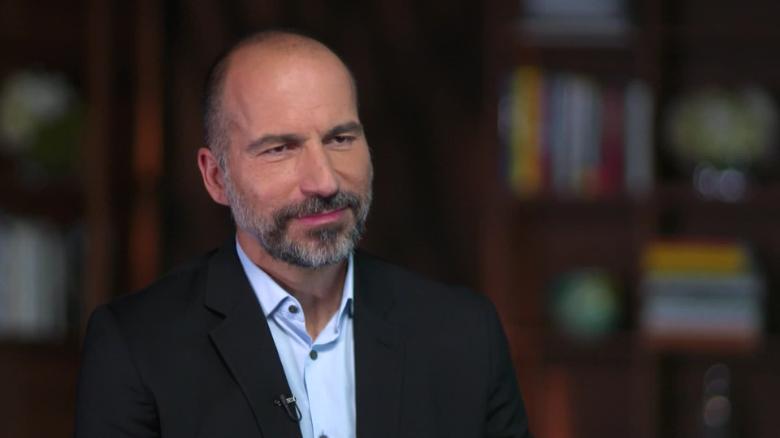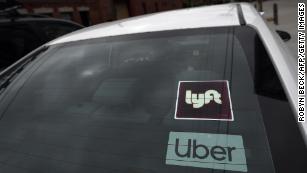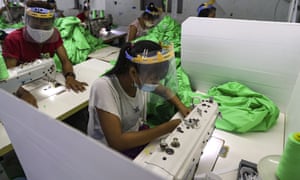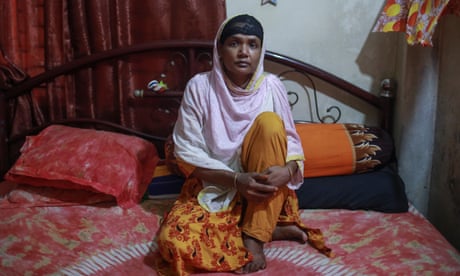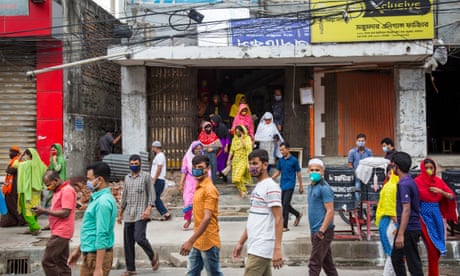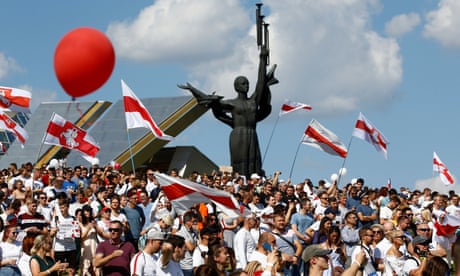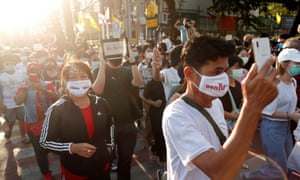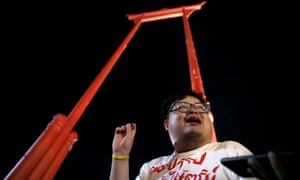BY ARIS FOLLEY - 08/16/20

© Getty Images
Cleveland Browns owners Dee and Jimmy Haslam said Sunday they'll support quarterback Baker Mayfield and other players if they decide to kneel during the national anthem to protest racial inequality this season.
In a Zoom call on Sunday, the co-owners defended freedom of speech and said they will support their players who participate in the protests regardless of possible backlash, according to USA Today.
“One of the great things about this country, one of the many great things, is the ability to have freedom of speech and being able to express yourself. So we are going to support our players,” Jimmy Haslam reportedly said on the call.
His comments come several months after Mayfield drew widespread attention in June for saying he “absolutely” plans to join kneeling protests against police brutality and racial inequality during the national anthem when the season picks back up.
At the time, Mayfield took aim at opponents of the kneeling movement, which was started by former San Francisco 49ers quarterback Colin Kaepernick during the 2016 season, and slammed criticisms that the kneeling protests, meant to bring awareness to racial injustice in the nation, were unpatriotic.
“It's about equality and everybody being treated the same because we are all human. It's been ignored for too long and that it my fault as well for not becoming more educated and staying silent,” Mayfield, who also said then that he supports cops and the military, said at the time. “If I lose fans, that's OK. I've always spoken my mind. And that's from the heart.”
During the Zoom call on Sunday, Jimmy Haslam touched on the ongoing debate surrounding anthem protests, which has seen more fuel in recent months amid nationwide protests sparked by the police killings of George Floyd, Breonna Taylor and other Black Americans.
In a Zoom call on Sunday, the co-owners defended freedom of speech and said they will support their players who participate in the protests regardless of possible backlash, according to USA Today.
“One of the great things about this country, one of the many great things, is the ability to have freedom of speech and being able to express yourself. So we are going to support our players,” Jimmy Haslam reportedly said on the call.
His comments come several months after Mayfield drew widespread attention in June for saying he “absolutely” plans to join kneeling protests against police brutality and racial inequality during the national anthem when the season picks back up.
At the time, Mayfield took aim at opponents of the kneeling movement, which was started by former San Francisco 49ers quarterback Colin Kaepernick during the 2016 season, and slammed criticisms that the kneeling protests, meant to bring awareness to racial injustice in the nation, were unpatriotic.
“It's about equality and everybody being treated the same because we are all human. It's been ignored for too long and that it my fault as well for not becoming more educated and staying silent,” Mayfield, who also said then that he supports cops and the military, said at the time. “If I lose fans, that's OK. I've always spoken my mind. And that's from the heart.”
During the Zoom call on Sunday, Jimmy Haslam touched on the ongoing debate surrounding anthem protests, which has seen more fuel in recent months amid nationwide protests sparked by the police killings of George Floyd, Breonna Taylor and other Black Americans.
“There is just all of this condemnation from one side versus the other, rather than everybody trying to understand, ‘Well, why is that important to you, Baker? You are a thoughtful young man. You understand the ramifications,’” Jimmy Haslam said on the call.
“So we are going to be fully supportive of our players no matter what they decide to do. We just ask that, as a country, we have a lot more thoughtful dialogue,” he added.
"Somewhere along the line, we completely lost that respect and the civil discourse, it is gone," Dee Haslam also said on the call. "Hopefully, we can get that back and maybe we can be an example of that."
Browns owners vow to support players who kneel during national anthem
“So we are going to be fully supportive of our players no matter what they decide to do. We just ask that, as a country, we have a lot more thoughtful dialogue,” he added.
"Somewhere along the line, we completely lost that respect and the civil discourse, it is gone," Dee Haslam also said on the call. "Hopefully, we can get that back and maybe we can be an example of that."
Browns owners vow to support players who kneel during national anthem
Posted by Charean Williams on August 16, 2020,

Getty Images
Baker Mayfield reiterated last week that he plans to kneel during the national anthem this season to protest social injustice. Other Browns players are expected to do the same.
Browns owners Dee and Jimmy Haslam said Sunday they stand in support of any player who takes a knee during the national anthem this season.
“One of the great things about this country, one of the many great things, is the ability to have freedom of speech and being able to express yourself,” Jimmy Haslam said on a Zoom call with his wife, via Tom Withers of the Associated Press. “So we are going to support our players.”
Mayfield said he was prepared for fan backlash. The Haslams are, too.
“There is just all of this condemnation from one side versus the other, rather than everybody trying to understand, ‘Well, why is that important to you, Baker? You are a thoughtful young man. You understand the ramifications,’” Jimmy Haslam said. “So we are going to be fully supportive of our players no matter what they decide to do. We just ask that, as a country, we have a lot more thoughtful dialogue.”
Nearly two dozen Browns players knelt before a home exhibition game last season, drawing condemnation from some Cleveland-area veterans groups, according to Withers.
Lost in the debate, Jimmy Haslam said, is why the players are kneeling.
“I think all too much attention is called to whether somebody kneels or stands or what their statement is, and not nearly enough attention is called to what they do afterward,” Jimmy Haslam said. “Dee and I can issue some great statement, but what you all really ought to look at is what ourselves, our coaches, our players are doing the rest of the week, if you will, to make this country a better place to live, work and raise a family.”

Getty Images
Baker Mayfield reiterated last week that he plans to kneel during the national anthem this season to protest social injustice. Other Browns players are expected to do the same.
Browns owners Dee and Jimmy Haslam said Sunday they stand in support of any player who takes a knee during the national anthem this season.
“One of the great things about this country, one of the many great things, is the ability to have freedom of speech and being able to express yourself,” Jimmy Haslam said on a Zoom call with his wife, via Tom Withers of the Associated Press. “So we are going to support our players.”
Mayfield said he was prepared for fan backlash. The Haslams are, too.
“There is just all of this condemnation from one side versus the other, rather than everybody trying to understand, ‘Well, why is that important to you, Baker? You are a thoughtful young man. You understand the ramifications,’” Jimmy Haslam said. “So we are going to be fully supportive of our players no matter what they decide to do. We just ask that, as a country, we have a lot more thoughtful dialogue.”
Nearly two dozen Browns players knelt before a home exhibition game last season, drawing condemnation from some Cleveland-area veterans groups, according to Withers.
Lost in the debate, Jimmy Haslam said, is why the players are kneeling.
“I think all too much attention is called to whether somebody kneels or stands or what their statement is, and not nearly enough attention is called to what they do afterward,” Jimmy Haslam said. “Dee and I can issue some great statement, but what you all really ought to look at is what ourselves, our coaches, our players are doing the rest of the week, if you will, to make this country a better place to live, work and raise a family.”
